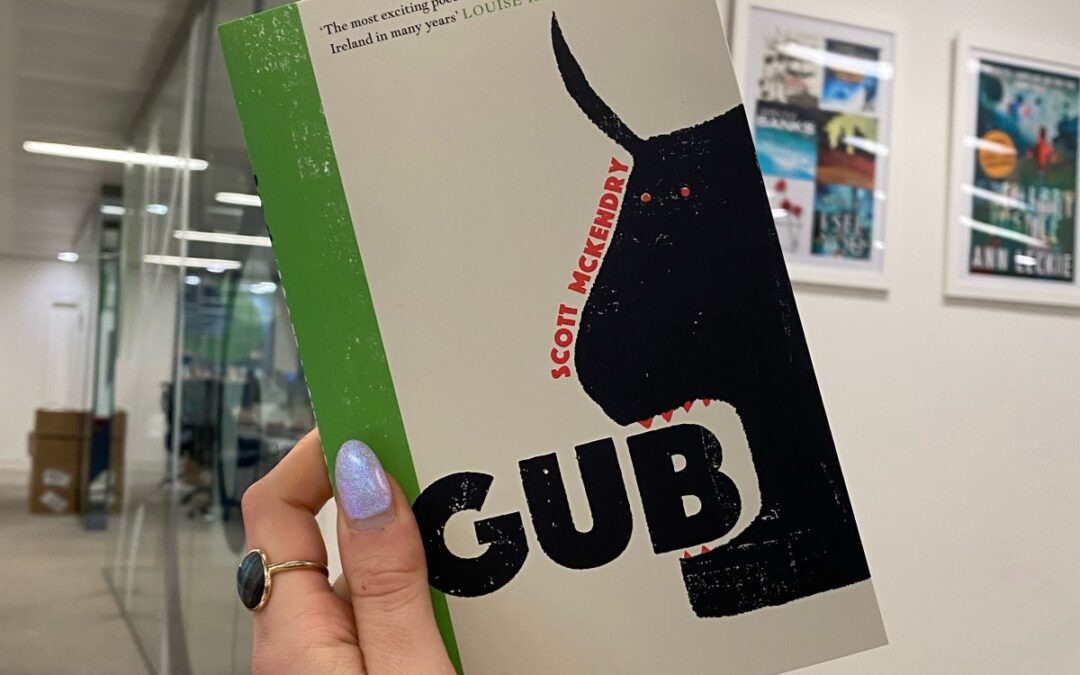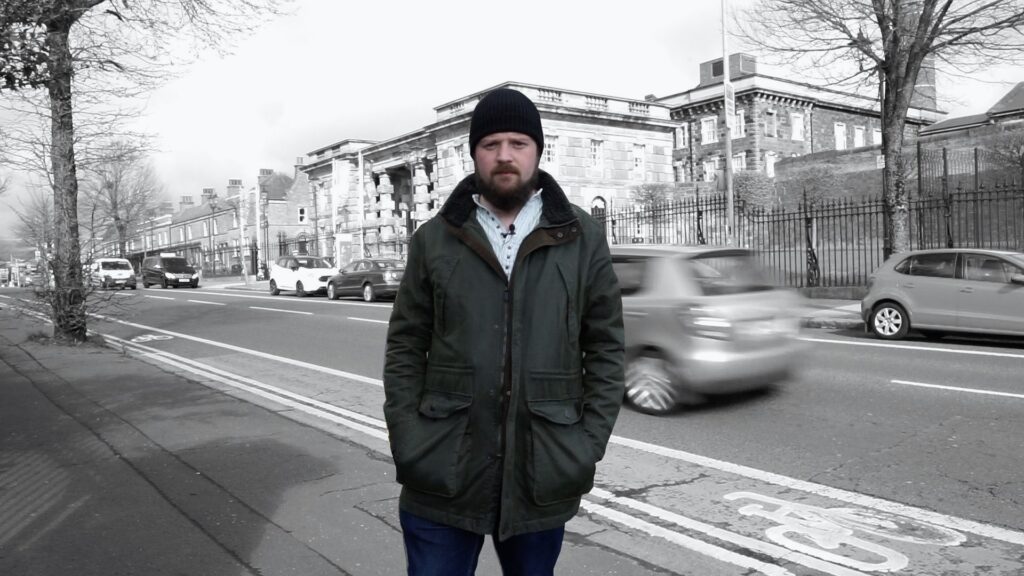Writer and poet Eoghan ‘Gino’ Mac Cormaic* reviews a new book of poetry by north Belfast man Scott McKendry which is published today.
-oo0oo-
By way of introduction to Scott McKendry’s first full poetry collection Gub, the author offers a dictionary-style definition of the eponymous title. Gub is a mouth or can be a person who insults without good reason. But as a verb it can mean to hit someone (on the mouth) or defeat overwhelmingly. Cognates of gob include gab and gob. The poet wisely declined to include GUBU, perhaps Ireland’s best known gub word but could have included gobán saor, the famous mythical smith since this work is, indeed, the work of a smith, a wordsmith.
Having read through the collection (to the background barking of a neighbour’s dog) I thought it might help my understanding of the poems if I first attempted to understand the poet.
McKendry is Belfast born and bred, a native of an area of the city not famous for its writers and one which he himself has described in the bleakest of terms when detailing his early years in an Irish Times article a couple of years ago. Notorious as the base of Johnny Adair in the post-Good Friday loyalist implosion (and accompanying murder spree against Catholics) Scott McKendry’s writings stand apart from that, are politically uninfluenced by that, but occasionally deride that ever-present backcloth.
Other themes run through the poems: geese, family, childhood friends and, as mentioned, mockery of the local loyalist activity. In the poem ‘Fiesta’ the poet and two others ‘were settled on the settee when the doorbell sung . . .’ He hears the words, ‘Well chums. We’re commandeering the car, get the keys.’, emanating from ‘a botched job of a stitched up hole in a rolled-down knit cap-cum-balaclava’ The television is on, showing the film Sea of Love, and as one hijacker remains to guard them he nonchalantly asks, ‘Is it a good one?’
The poet’s reply is cutting: ‘Seemed dead on till youse cunts came.’
In ‘Five Little Terrorist Boys’ McKendry recalls his boyhood: he armed with his painted table leg and nails akimbo; Dinsmore with a whale harpoon; Thibault with an imaginary MP40 machine gun and the Twins McLaird with nunchucks like ninja turtles. The army complete, all that’s needed is ‘to choose a cause from a list wrote up by Twin/a motto (something hotly obscure) and a three to four letter acronym.’
Scott McKendry knows his punchlines.
‘Greasepaint’ recalls the school mate called, inexplicably, Carl Marks, when the teacher ‘couldn’t accept that Carl’s name/was just a happen so.’ The year above the boys had a Paul McCartney. Carl eventually went on eBay to buy all four volumes of Capital and a tube of black greasepaint. The solution to his problematic name clearly lay somewhere between Karl and Groucho Marx.
Other memories are drawn down. The poverty of the area and his milieu can be understood in the poem, ‘In every Prole Home a Rapture’, or in ‘Denmark Street’, but even in these poems humour can peek through—like the tale of two boys tasked with painting the kerbstones red, white and blue who start from opposite ends of the street to meet in the middle to fight over a white kerb. Family poems can be tender, like ‘A Song for Gaud’ where he speaks to his little niece with a peace process, probably as the setting:
I wish I could have been reared in this future too, kiddo,
where, although the ignorami
are feelin’ the cold,
democracy could be born by caesarean section . . .
So back to the Gobán Saor. McKendry is hailed by critics as the most exciting poet to come out of the north in years. He is without doubt a wordsmith. I don’t claim to understand all the subtleties or reference points in his poetry but that too is okay. Some might be for his own benefit. And we know what GUBU means, and some of that too is scattered through his verse: the Grotesque three-toed sloths, the Unbelievable adventure of childhood, the Bizarre (and try reading some poems in eejit language) . . . but Unprecedented, no.
In all working-class areas there are stories to be told. Isn’t it fortunate that McKendry has chosen now to tell his.
Gub by Scott McKendry, published by Corsair/Hachette, £10.99
*Eoghan Mac Cormaic is a writer who lives in Galway. Among his published books are: Pluid; On The Blanket; Macallaí Cillín; the pen behind the wire; Gaeil agus Géibheann. His new book, Captive Columns–An underground prison press, 1865-2000, is due for publication in May 2024




